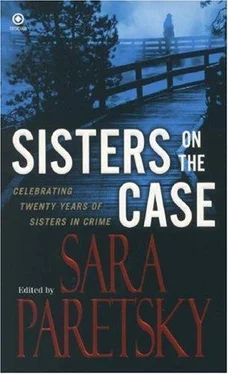‘‘It’s dark,’’ Tony protested. ‘‘She’s all in, Bobby.’’
Victoria frowned in the dark. ‘‘It was where you come into the golf course. One of the hills where the holes are on the Seventy-first Street side of the park. I know, there was a statue near me, I don’t know whose.’’
With this much information, Bobby set up searchlights near the statue of the Lithuanian aviators, Darius and Girenas, although none of the cops believed they’d find one small Brownie camera in the detritus left in the park.
When Boom-Boom whispered to his cousin the news that Tomas was dead and the cops needed to find the man who’d been with him, Victoria miraculously found some reserve of energy from childhood’s inexhaustible reservoir. She tried to remember in her body how slowly she’d moved, where she’d twisted and turned on the walking paths, and finally cut across the grass to the golf course. Boom-Boom stayed with her; within another five minutes, they found the Brownie.
Bobby took custody of it, promising on his honor as a policeman that he’d give the camera back the instant the pictures were developed, and the cousins finally got into their fathers’ separate cars. At home, they received varying receptions from their mothers: both women frantic, both doting on their only children, each showing it with tears, and then a slap for being foolhardy and disobedient. But Gabriella instantly repented of the slap and took her daughter into the bathroom to shampoo her rough mass of curls herself.
‘‘Carissima, when will you learn to think first, to act next after thinking? This Tomas, this brother of Marie’s, he was a- mafioso-un ladro- he stole from Metzger’s Meats and sold on his own, sold the meat to restaurants in Wisconsin. He blamed the janitor, who is a Negro man, for losing his job, because the janitor reported seeing him. But your papa is telling me, Tomas also cheated his capo in the mafia, and this was a man also named Antoni. It is not such a rare name, Victoria. If you asked me, I would tell you this thing, that your papa is in danger from the calca in the park, but not from this brother of Marie, and then you do not get the most biggest frightening of your life. And also, then you are not giving me the same gigantic frightening.’’
And of course, as it turned out, when Bobby got the pictures developed, the man who abducted Victoria, who flung her into the trunk of the Wildcat, which he got several spirited youths to push into the lagoon, was the Tony who worked in Don Pasquale’s organization. Tomas had been stealing meat from Metzger’s and selling it in Wisconsin for the mob, but he’d taken more than his share of the profits. Don Pasquale sent Tony in his red Hawaiian shirt to Marquette Park to kill Tomas under cover of the riots. The don wasn’t happy with Tony for letting a little girl with a camera get the best of him: he refused to post bail for his henchman.
‘‘So you see, carissima, è molto importante, ask, ask, think, think, before you leap on your bicycle and turn my hair white,’’ Gabriella finished. ‘‘Promise me, cuore mio, promise me this is the last time, that from now on you are turning over a fresh page, you will become more careful, more prudente! Promettimelo, Victoria!’’
‘‘Si, Mamma: te lo prometto,’’ Victoria said.
You May Already Be a Winner by Margaret Maron
‘‘They’ve done what? Oh, Carlie, honey!’’ The white-haired man reached past the coffee cup in front of him and clasped his niece’s hand in dismay. ‘‘My sister’s not even cold yet and your sisters are already stripping her house?’’
Small-boned and fair-haired, with blue eyes that were red-rimmed from crying, Carlie Baxter swallowed past her tears and nodded. ‘‘Her silver, her good jewelry. The two rosewood parlor chairs. Even Great-grandmother’s dollhouse.’’
‘‘That old thing? Why? They don’t have daughters and you were the only one who ever played with it.’’
‘‘Marsha watches Antiques Roadshow, and a similar one was valued at two thousand dollars,’’ Carlie said bitterly. ‘‘When I came back to the house this morning, I thought someone had broken in. I almost called the police until Mary told me that she and Marsha had taken them for safekeeping now that the neighborhood’s gone down so much.’’
‘‘Well, there is that,’’ Uncle Carlton conceded. ‘‘I tried to get Genevieve to sell this place ten years ago when the McNairy house was broken up into apartments and property values first started sliding, but she was so sure the neighborhood would come back to its former glory.’’
‘‘She enjoyed most of the changes, though,’’ Carlie said with a ghost of a smile. ‘‘She liked the little shops that came in, the bodega on the corner, children playing on the sidewalks again, even the signs in Spanish and Arabic.’’
‘‘All the same,’’ her uncle said, ‘‘I doubt if you’ll get half the money she could have gotten ten years ago.’’
‘‘Me?’’ Carlie asked, startled by his comment.
‘‘You.’’ The old man shook his head sadly. ‘‘I had no business still being her attorney and I blame myself for not making Genevieve update her will, but I never expected to outlive my baby sister.’’
Tears filled his eyes and Carlie felt her own eyes sting again. She had been named for this man, her mother’s beloved older brother. Except for her twin sisters and their sons, Carlton Burke was her only remaining relative. A retired attorney who had taken too many pro bono cases to amass a fortune, he was almost twenty years older than Mom and the closest thing to a grandfather the three sisters ever had. Carlie adored him.
‘‘Mom left this house to me?’’ She looked past the archway of the dining room where they sat to the front parlor, now denuded of its rosewood chairs and antique dollhouse, and tried not to feel a surge of hope. After her father’s death, his pension and a series of part-time jobs had enabled her mother to continue living in the two-story Victorian house and finish raising Carlie. Unlike for her two older sisters, though, college for Carlie had meant student loans and working every minute she could spare from the books. Two days after she graduated with a degree in French medieval history, her mother had stepped out in front of a delivery truck without looking and was thrown into the path of an oncoming car. Both drivers were horrified and remorseful, but clearly not at fault. It was assumed that Genevieve Andrews had been on her way to the nearby bodega, full of hope and optimism, to buy her weekly lottery tickets.
Carlie had planned to work a year before going on to grad school. Instead, she had spent the last five weeks shuttling back and forth between the hospital where her mother lay in a coma and the house where Buster, Mom’s elderly dog, needed daily insulin shots.
Mary and Marsha both wept and then excused themselves for not pitching in more. ‘‘Our jobs. Our sons. Our husbands. Oh, it’s so lucky that you’re still unencumbered, Carlie.’’
Trying not to feel bitter, Carlie took a deep breath. The house was shabby now. It needed paint and a new roof, and the plumbing was unreliable. All the same, if it truly was hers to sell, then maybe she could register for fall classes immediately instead of waiting a year. Or maybe she would even spend this year studying in France.
Uncle Carlton shook his silver mane regretfully. ‘‘I’m sorry, honey. You’ll be lucky to get enough to pay her debts. And it’s all my fault. I should have written another will for Genevieve.’’
‘‘I don’t understand. You just said the house was mine.’’
Читать дальше












